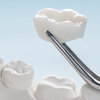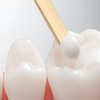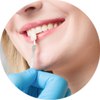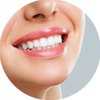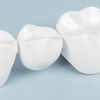What To Eat After a Tooth Extraction
Discover gentle foods that promote recovery while minimizing discomfort. Whether you're navigating soft diet choices or ensuring proper hydration, our article provides the insights you need.
Request an AppointmentHey there! After undergoing a tooth extraction service, discover essential tips on what foods to eat to aid your healing journey effectively. What to eat after tooth extraction? Explore gentle, nutrient-rich options that promote recovery while minimizing discomfort. Whether you're navigating soft diet choices or ensuring proper hydration, our comprehensive guide provides the insights you need. Read here to learn, “What can I eat after tooth extraction?” and empower your recovery process! If you have any questions, our team is here to help!
What Foods to Eat After Tooth Extraction?
Choosing the right foods after a tooth extraction plays a crucial role in promoting healing and preventing complications. Here’s a detailed answer to the question, “What foods to eat after tooth extraction?”
- Soft Foods: Opt for foods that are easy to chew or require minimal chewing. Mashed potatoes, smoothies, pureed soups, oatmeal, and well-cooked pasta or rice are excellent choices. These foods are gentle on your gums and reduce the risk of disturbing the extraction site or dislodging the blood clot.
- Liquid Foods: Start with clear liquids immediately after the procedure to stay hydrated and ease back into eating. Water, clear broths, apple juice, and herbal teas are definitely included in foods to eat after tooth extraction. They are hydrating and do not require chewing. As you progress, incorporate thicker liquids like milkshakes, yogurt drinks, and smoothies with soft fruits and vegetables for added nutrition.
- Avoid: Can I eat harsh food after tooth extraction? Steer clear of crunchy, hard, or sticky foods that could irritate the extraction site or get stuck in the socket. Foods like nuts, chips, popcorn, and tough meats should be avoided during the initial healing phase. Also, refrain from consuming spicy or acidic foods that may cause discomfort or irritation.
Things to Avoid After Tooth Extraction
Knowing what things to avoid after tooth extraction can prevent complications and promote healing after tooth extraction:
- Crunchy and Hard Foods: Chips, nuts, and hard candies can irritate the extraction site or dislodge the blood clot, leading to a dry socket.
- Sticky Foods: What not to eat after tooth extraction? Caramels, taffy, and chewing gum. They can get stuck in the socket and increase the risk of infection.
- Spicy and Acidic Foods: These are definitely not the right things to eat after tooth extraction. These can cause discomfort and irritation to the healing gums.
- Alcohol and Smoking: Both can delay healing and increase the risk of complications like infection and dry sockets.
When Can I Eat After Tooth Extraction?
The timing of when you can eat after a tooth extraction depends on several factors, including the complexity of the extraction and your dentist's instructions. So, thinking, “When can I eat after tooth extraction”? Here’s a more detailed timeline:
- Immediate Post-Extraction: Can I eat 3 hours after tooth extraction? In the first few hours after the procedure, focus on staying hydrated with clear liquids. Avoid hot drinks and alcohol, as they can interfere with the healing process and increase bleeding.
- First 24 Hours: What can I eat 24 hours after tooth extraction? Stick to soft, cool foods to minimize discomfort and swelling. These can include yogurt, applesauce, smoothies, and well-cooked oatmeal. Avoid using a straw or making sucking motions, as these can dislodge the blood clot and lead to complications like dry sockets.
- Next Few Days: How long after a tooth extraction can I eat normal food? Gradually introduce more solid but soft foods as tolerated. Cooked vegetables, soft fruits, scrambled eggs, and pasta are good options. Chew slowly and use the side of your mouth opposite the extraction site to minimize pressure.
Do You Need a Diet After Tooth Extraction?
After realizing how soon can I eat after tooth extraction, it's important to include soft protein foods such as eggs, yogurt, cottage cheese, and smooth nut butter. Protein plays a vital role in tissue repair and supports immune function during recovery.
Additionally, prioritize rich-in-vitamins A and C foods to eat after tooth extraction. Examples include puréed carrots, mashed sweet potatoes, and fruits like citrus and berries, which provide essential nutrients to support your body's healing processes.
Staying hydrated is also key. Drink plenty of water throughout the day to keep your mouth moist and aid in flushing out bacteria, which helps prevent infection. Avoid sugary drinks, carbonated beverages, and caffeine, as they can irritate the extraction site and potentially delay healing.
By focusing on this diet after tooth extraction, you can help ensure a smoother recovery and promote optimal oral health.
The Best Foods After Tooth Extraction
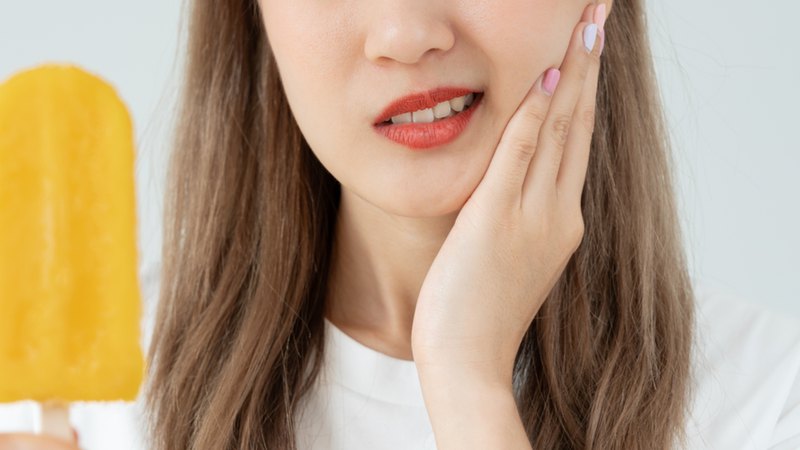
The healthy best foods after tooth extraction can help alleviate discomfort and support healing:
- Ice Cream and Popsicles: Cold treats can numb pain and provide relief. Opt for softer varieties without nuts or crunchy add-ins.
- Applesauce and Yogurt: These foods are easy to eat and provide beneficial probiotics (in yogurt) that can support digestive health during recovery.
- Broths and Soups: A soft food is the best to eat after tooth extraction. Nutrient-rich broths and puréed soups are comforting and can be customized with soft vegetables and proteins like shredded chicken or tofu.
What to Eat and Drink After Tooth Extraction?
Your choices immediately following a tooth extraction can influence your recovery:
- Water
- Smoothies
- Tea
- Avoid Straws
What to eat and drink after tooth extraction? Drink water frequently to stay hydrated and maintain oral hygiene. Swish gently with water after eating to remove food particles and reduce the risk of infection.
Blend soft fruits like bananas, mangoes, or berries with yogurt or milk for a nutritious and easy-to-consume meal replacement. Soft fruits are the best foods after tooth extraction.
Choose non-caffeinated herbal teas like chamomile or ginger, which can have soothing properties and help reduce inflammation in the mouth.
Using a straw can create suction that may dislodge the blood clot and lead to complications. Drink directly from a cup or glass instead.
Additional Tips for Eating After Tooth Extraction
- Chewing: When you begin eating after tooth extraction, chew slowly and carefully, using the side of your mouth opposite the extraction site.
- Temperature: Avoid very hot foods and beverages, as they can increase swelling and discomfort. Stick to lukewarm or cool foods during the initial days of recovery.
- Medication: If pain medication is prescribed, take it as directed before meals to manage any discomfort associated with eating.
Oral Hygiene: Eating After Tooth Extraction
Maintaining good oral hygiene is crucial to prevent infection and promote healing:
- Gentle Brushing: Brush your teeth gently after eating after tooth extraction. Use a soft-bristled toothbrush and rinse your mouth gently with water or a saltwater solution.
- Avoid Mouthwash: Refrain from using mouthwash containing alcohol, as it can irritate the extraction site. Opt for a gentle, alcohol-free mouth rinse if recommended by your dentist.
Wrap-Up: What Is Good To Eat After Tooth Extraction?
Proper nutrition is essential for a smooth and speedy recovery after a tooth extraction. By focusing on soft, nutrient-rich foods and staying hydrated, you can support healing and minimize complications. Follow your dentist's recommendations closely to know what to eat the day after tooth extraction. Prioritize gentle care for your mouth during this crucial recovery period. With careful attention to your diet, you'll soon be back to enjoying your favorite foods and a healthy smile. Learn what is good to eat after tooth extraction with us!
At King of Prussia Dental™ Associates, with over 30 years of trusted service in the community, we understand the importance of post-operative care in ensuring our patients heal comfortably and efficiently. Our trademark commitment, reflected in our quality work and personalized approach, means we treat every patient like family.

